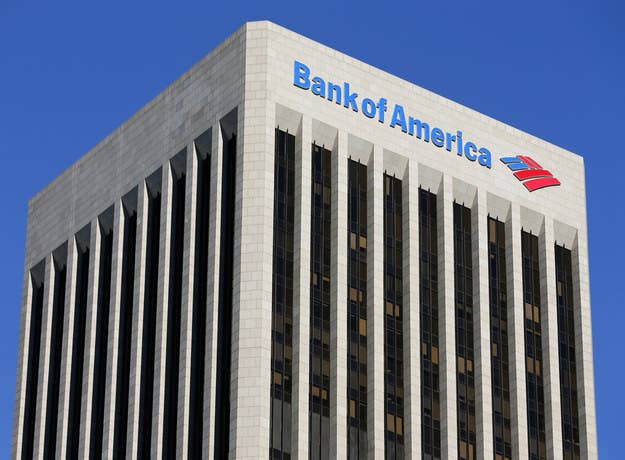
The Federal Reserve announced this morning that Bank of America would have to suspend its plans to increase its dividend and buyback this year. This is a reversal of the approval Bank of America won in the Federal Reserve's review process for the largest banks to pay out dividends and buyback stock. Bank of America had announced last month that it would buy back $4 billion worth of stock and increase its quarterly divided from a penny a share to 5 cents.
The company's stock is down more than 5% in early trading to $15.10. The Fed's suspension of the buyback is a blow for the bank's shareholders, who had been counting on receiving much more in buybacks and dividends this year.
Bank of America said this morning that it had incorrectly calculated its regulatory capital ratios. The bank said that it had recorded an "incorrect adjustment related to the treatment of certain structured notes in the Merrill Lynch."
"Bank of America must address the quantitative errors in its regulatory capital calculations as part of the resubmission and must undertake a review of its regulatory capital reporting to help ensure there are no further errors," the Federal Reserve said in a statement. Bank of America will have 30 days to resubmit its capital plan according to the Fed's statement this morning.
Bank of America said that it expects its revised buyback and dividend request to be smaller than what the Fed approved last month.
Bank of America disclosed that the bank's capital ratios — a measure of how much of the bank's total assets are funded by retained earnings and sale of stock instead of debt — were incorrect when it submitted them to the Fed for its evaluations. This is crucial because a major component of the Fed's approval process for the 30 largest banks to pay dividend or buyback stock is measuring how a bank's capital ratios will be affected by an economic downturn.
Bank of America is now the second megabank not able to increase its dividend and stock buyback — Citigroup was rejected by the Fed for what the Fed said were qualitative gaps in how the bank projected its revenue in a large economic downturn.
Bank of America bought the investment bank Merrill Lynch in the midst of the financial crisis and the massive losses it had to assume brought along years of legal trouble and lawsuits that eventually claimed the job of then-CEO Ken Lewis, who resigned from the bank in 2009. Bank of America settled a suit with investors for $2.43 billion in 2012 over allegedly hiding the true condition of Merrill Lynch's finances when trying to win shareholder approval for the merger. Lewis and the bank's then chief financial officer Joe Price recently settled civil suits by the New York state Attorney General over the Merrill merger.
The rejection from the Federal Reserve comes at a trying time for the company, which has still not gotten its pre-crisis legal troubles behind it. The bank is reportedly in negotiations with the Justice Department over Bank of America and Countrywide's — the mortgage broker it acquired 2007 — sale of shoddy mortgage-backed securities before the financial crisis. Just last month, Bank of America reached a $6.3 billion settlement with the Federal Housing Finance Agency, the regulator of Fannie Mae and Freddie Mac, the two government-sponsored mortgage companies, over mortgage securities it sold to them.
Thanks to its massive expected legal costs, the bank reported a loss of $276 million in the first quarter of this year. The bank reported a $6 billion pre-tax legal expense.
